Dubai’s Chocolate-Based Propaganda Push
For paid subscribers: Coffee is increasingly used to burnish the United Arab Emirates’ international image. Now it is being supercharged by merging with the popularity of the Dubai chocolate trend.
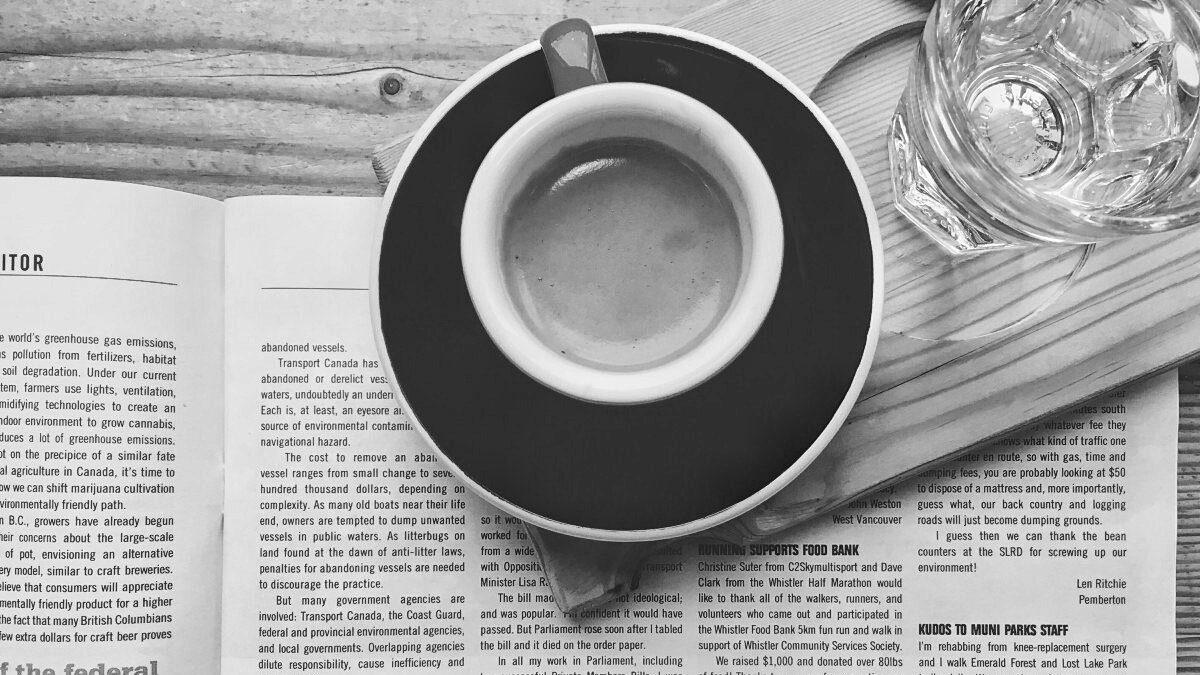
An espresso cup sits atop a magazine on a table, seen from above. Via PxHere
It’s the end of yet another week of Michigan’s stay-at-home order, which has been extended until at least May (something not everyone is happy about).
In the midst of all this, I decided to try making a French press for the first time in a long time—inspired mostly by this great Twitter thread. I’ve never liked the French press, mostly because it’s annoying to clean and also because I don’t enjoy silt in my coffee.
What I, and almost every other person I know (as well as most specialty coffee shops), have been doing wrong is the most satisfying part of brewing a French press: the press.
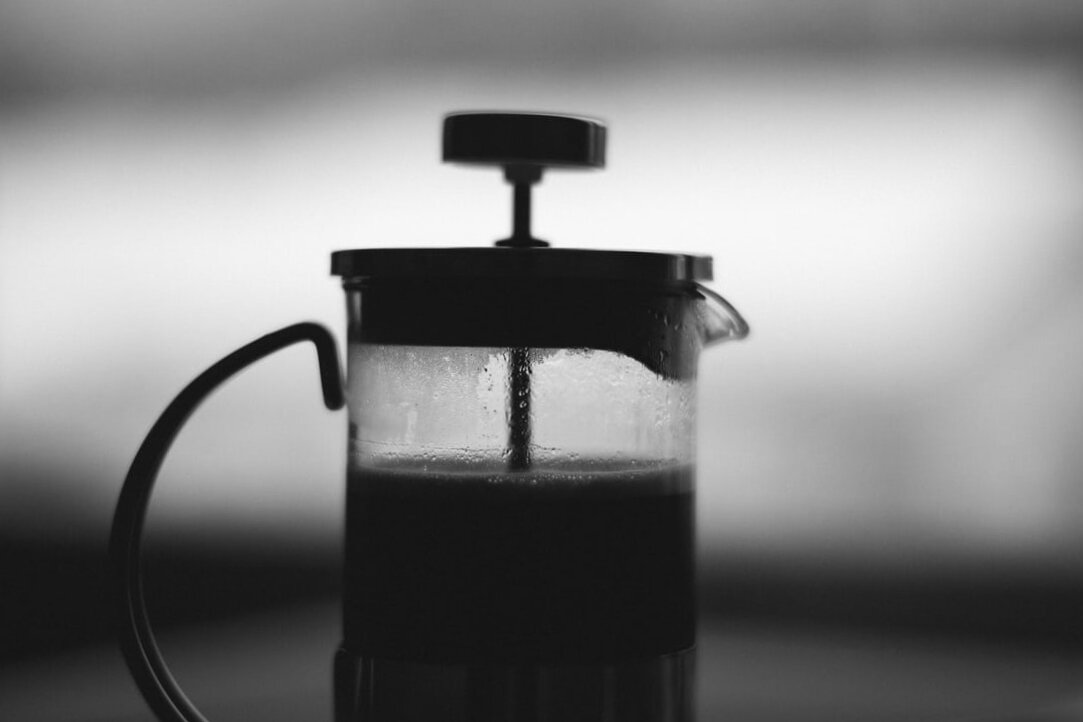
A French press is silhouetted against a light background. Via Unsplash
James Hoffmann addresses this in his 2016 video on the French press, and the other key is patience. It takes a while to brew a French press correctly. So, here is what I did, in case you’d like to try it yourself:
If you’ve already been using this technique then good for you, but for many people (and far too many coffee shops) this is not how they brew French press. Hopefully this helps someone—and if not then it’s at least an excuse to watch some other James Hoffmann YouTube videos, which we should all be doing more of.
Right, to the news.
Another week of lockdown, another week of stasis. A few new bits and pieces:
Right, what else has been going on?
Oh no, no thank you.
This story is framed as a new way to follow social distancing guidelines (topical!) and as a way to reduce car pollution, but it all just feels far too dystopian for my liking. In many countries drones are used to spy on, and drop bombs on, citizens. This will only help to normalize drones buzzing around our skies until we don’t notice them anymore. Then what?
It also feels pointless—won’t the coffee be cold? And if it’s still hot, that implies that you live close enough to the coffee shop to just walk over there.
Researchers have been looking for ways to reuse spent coffee grounds for ages now—possibly because there’s just so much of it lying about. Coffee waste has been turned into furniture, printer ink, clothes, and even coffee cups.
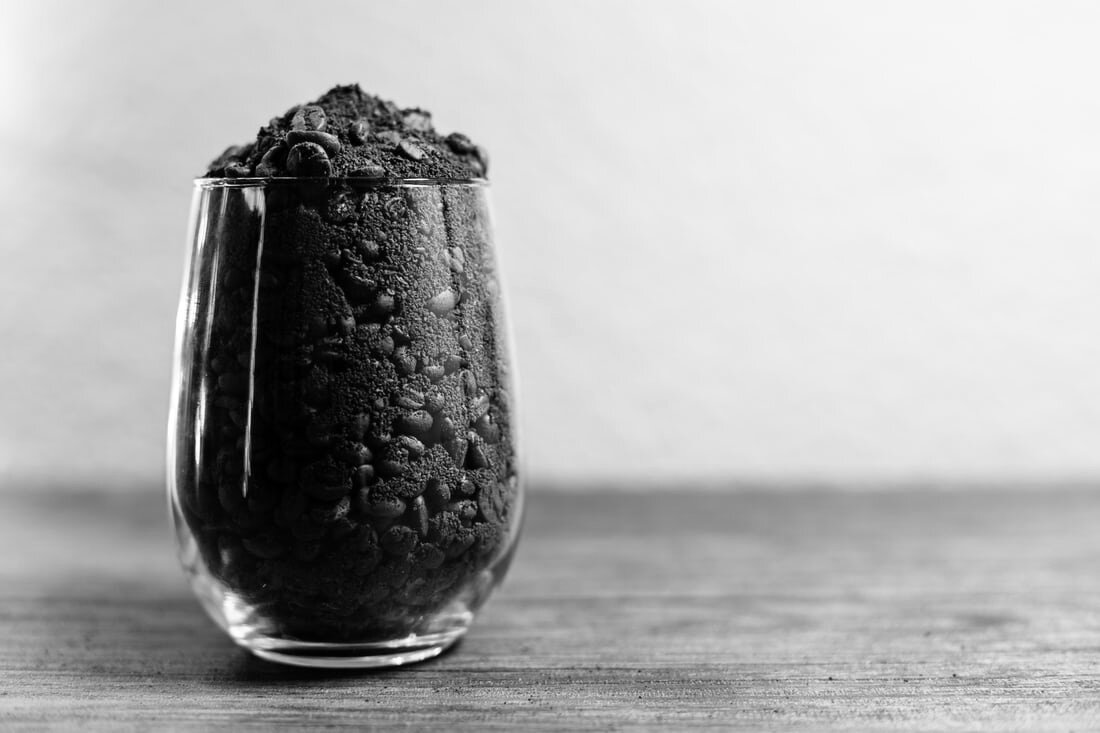
A glass full of ground coffee and beans sits on a wooden table. Via Unsplash
Now Japanese scientists have figured out how to “mine used coffee grounds for cellulose used to make cellulose nanofiber, a key component in the bio-degradable plastics” according to Sprudge.
According to the source article in New Atlas, coffee grounds are a good candidate for this sort of product because “approximately half of their weight and volume is made up of cellulose.”
The researchers are even looking to turn the coffee plastic into plastic that can be used to hold more coffee: “We aim to make a transparent disposal coffee cup and straw with an additive comprising cellulose nanofibers from spent coffee grounds,” said the lead scientist Izuru Kawamura from Yokohama National University.
Jacobs Douwe Egberts (JDE) is partnering with fellow acronyms IDH and USAID to “measure the impact of the organisations’ joint sustainable coffee activities in Vietnam.”
Says Do Ngoc Sy, JDE Sustainability Manager in Asia and the Pacific: “This collaboration is one more step in JDE’s commitment to work continuously toward 100 per cent responsibly sourced coffee and tea by 2025.”
No idea what “100 per cent responsibly sourced coffee and tea” means. Who is responsible for what? According to a previous press release about a similar project, “JDE co-creates sustainability solutions with select suppliers and partners who contribute at least 30 percent of their total costs toward sustainable production and improved processing.”
That clears things up.
Apparently people are putting lemon into their coffee and claiming it can help with weight loss and other health benefits.
It… can’t.
Well, not more than coffee and lemon separately can.
I mostly enjoyed the article because it helpfully explains what coffee is: ”The brewed drink, made from roasted coffee beans, contains a stimulant called caffeine.”
Thanks, Harper’s Bazaar.
Of course squeezing lemon into your coffee sounds terrible, but it’s probably not going to hurt. However, it’s also not any better for you health-wise than chasing your espresso with a shot of lemon juice.
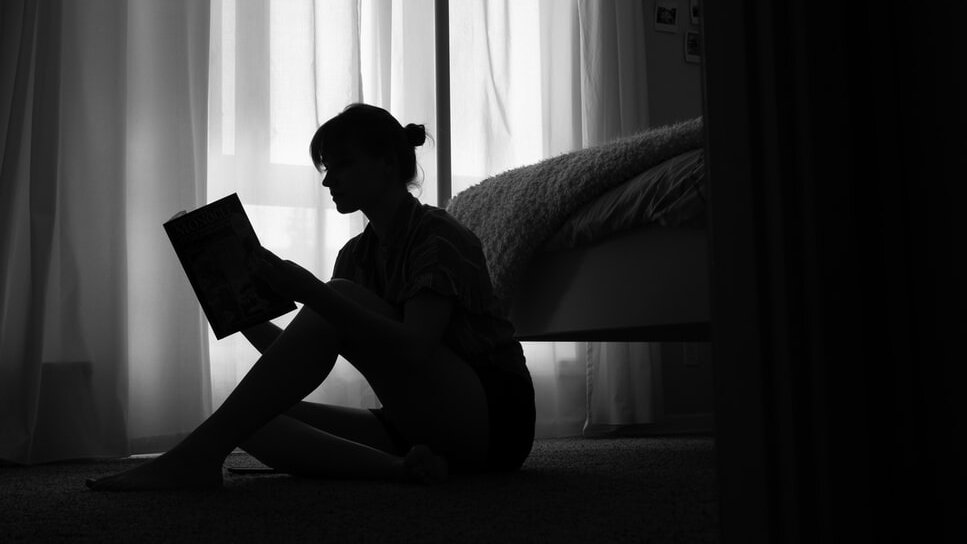
A person sits on the floor reading a book. via Unsplash
The USPS Collapse Would Be A Disaster For Coffee by Sprudge Staff
The Coffee Scientist’s Guide To Making Better Coffee At Home by Jacob Grier
Until next week, drink good coffee. Stay at home, support your local coffee roaster, and wash your hands.
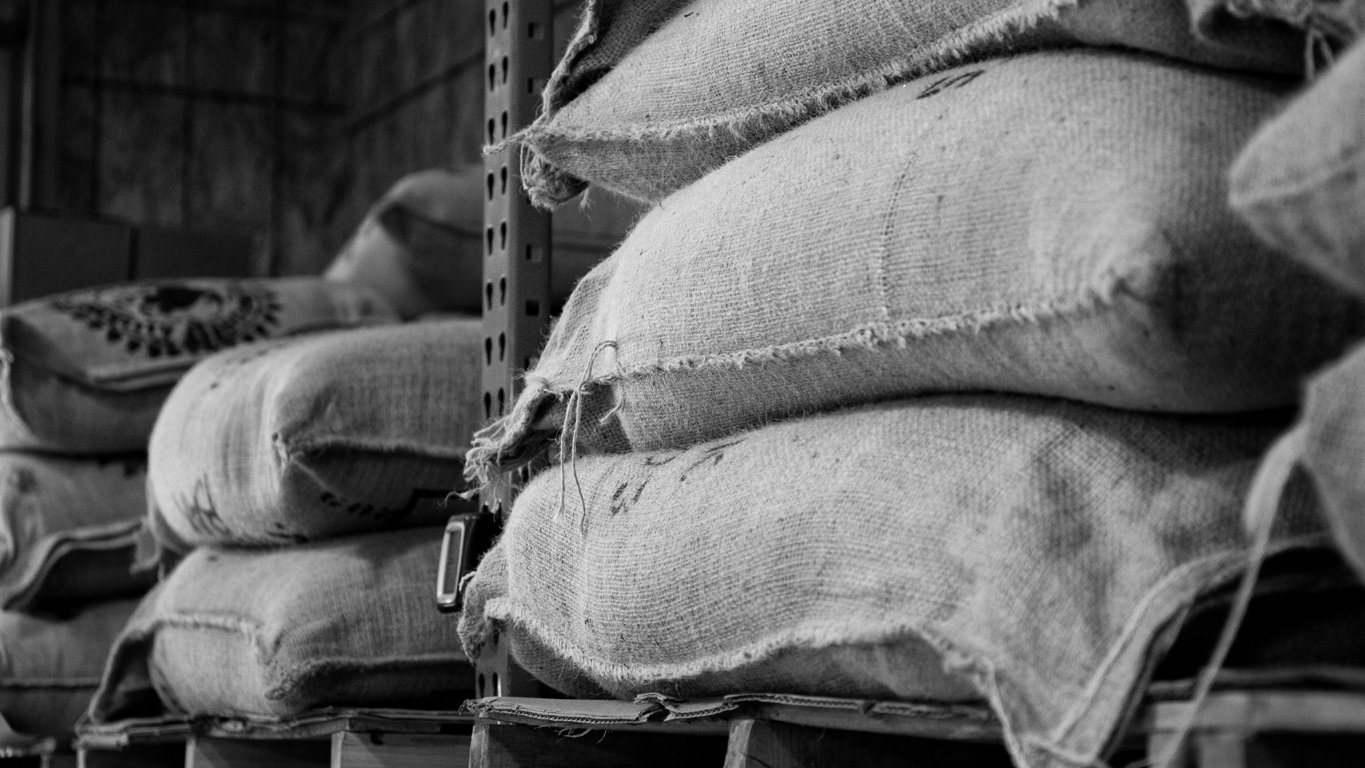
Nov 24, 2023 Connecting the Dots: Inside the 2023 Coffee Barometer Nov 24, 2023 Nov 24, 2023
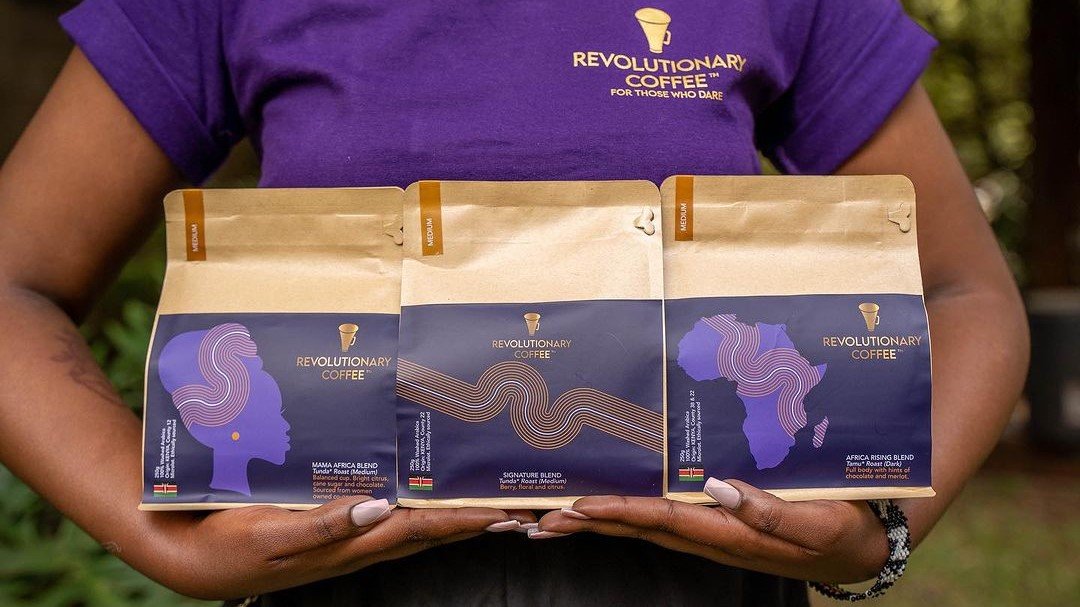
Oct 21, 2023 'Specialty Coffee Should be Enjoyed by Those Who Grow It': The Farmer's Daughter Joining Kenya's Coffee-drinking Revolution Oct 21, 2023 Oct 21, 2023
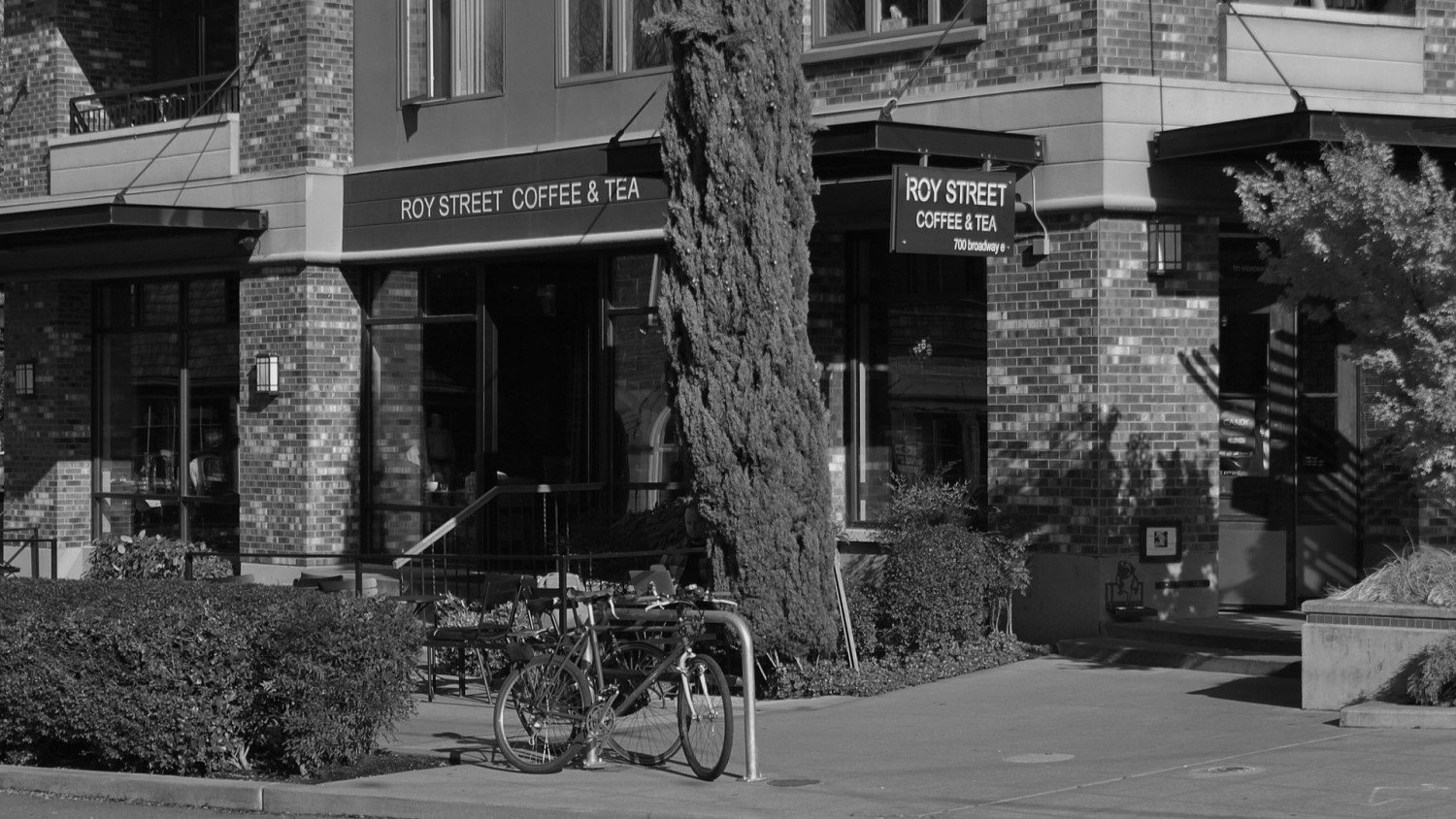
Oct 6, 2023 Stealth Starbucks: A Premonition of Modern Specialty Coffee Oct 6, 2023 Oct 6, 2023
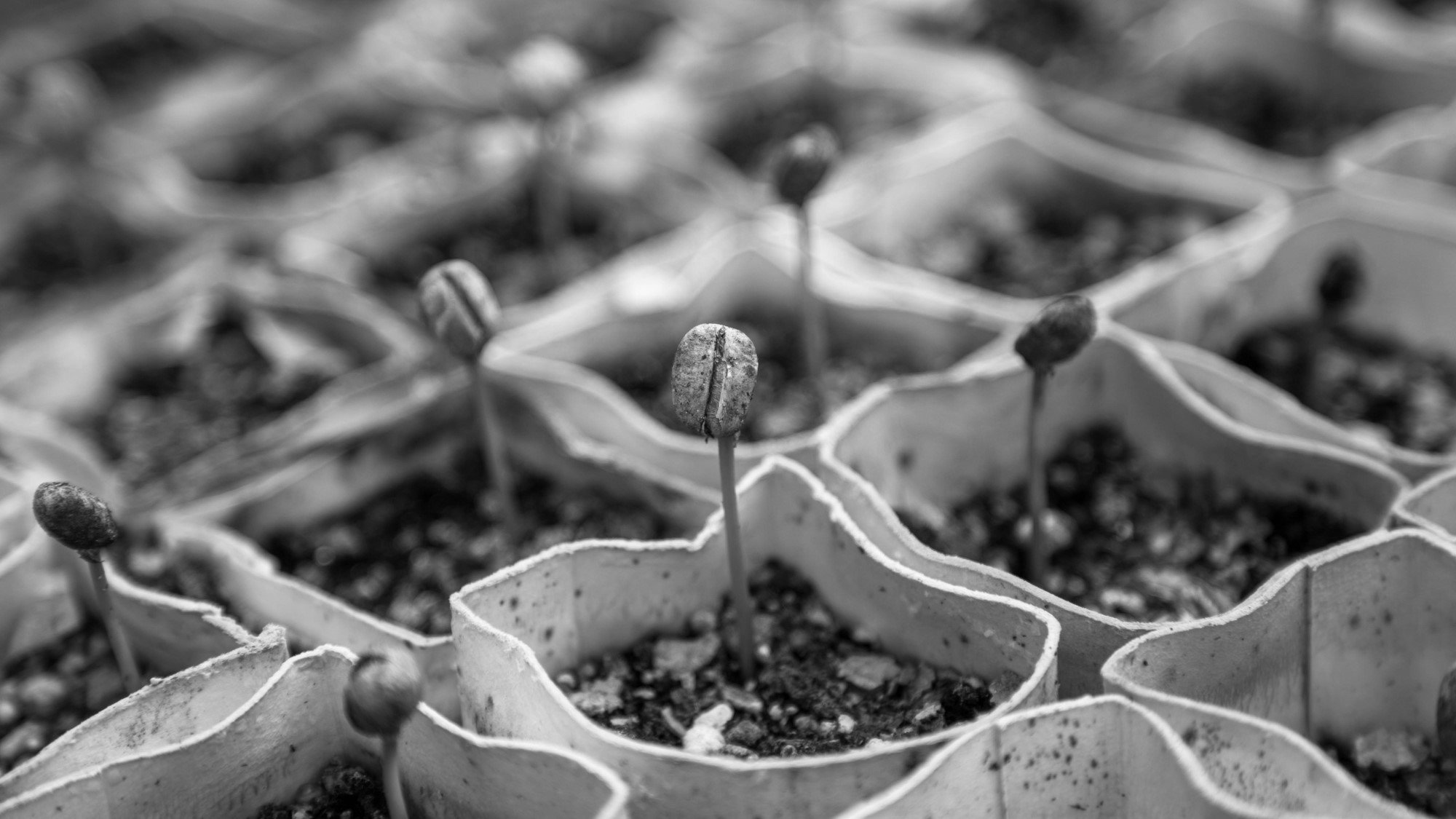
Sep 22, 2023 Can the Coffee Change Fund Save Coffee? Sep 22, 2023 Sep 22, 2023
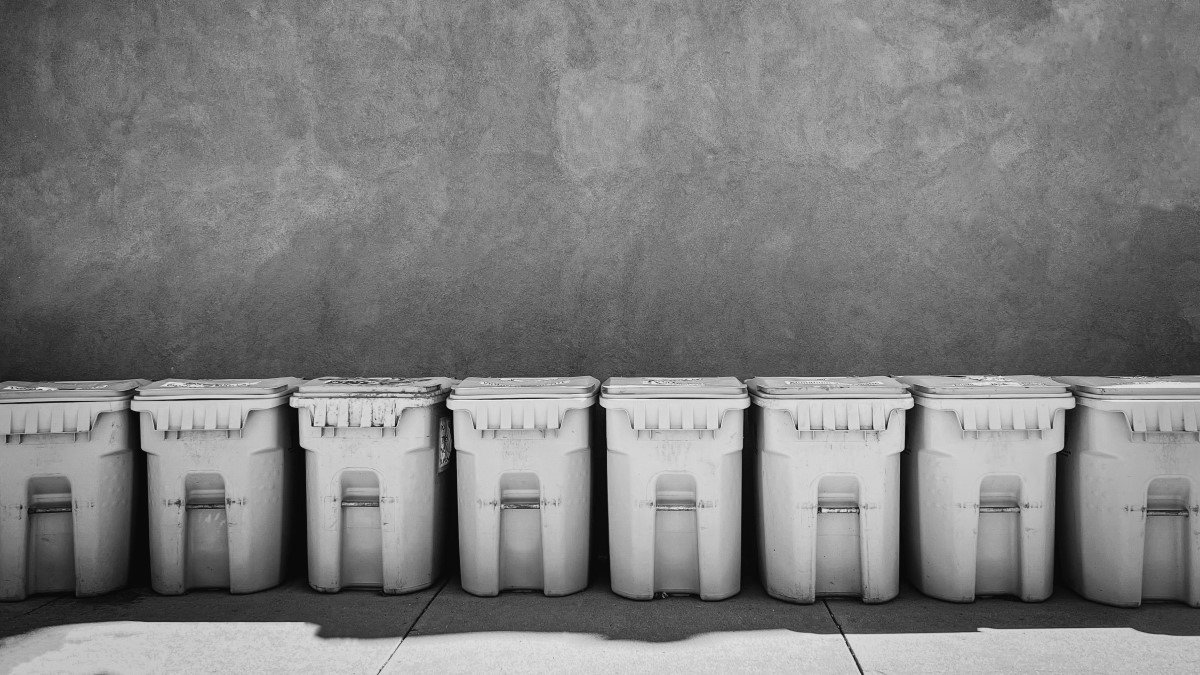
Sep 8, 2023 Upcycled Coffeewashing Sep 8, 2023 Sep 8, 2023
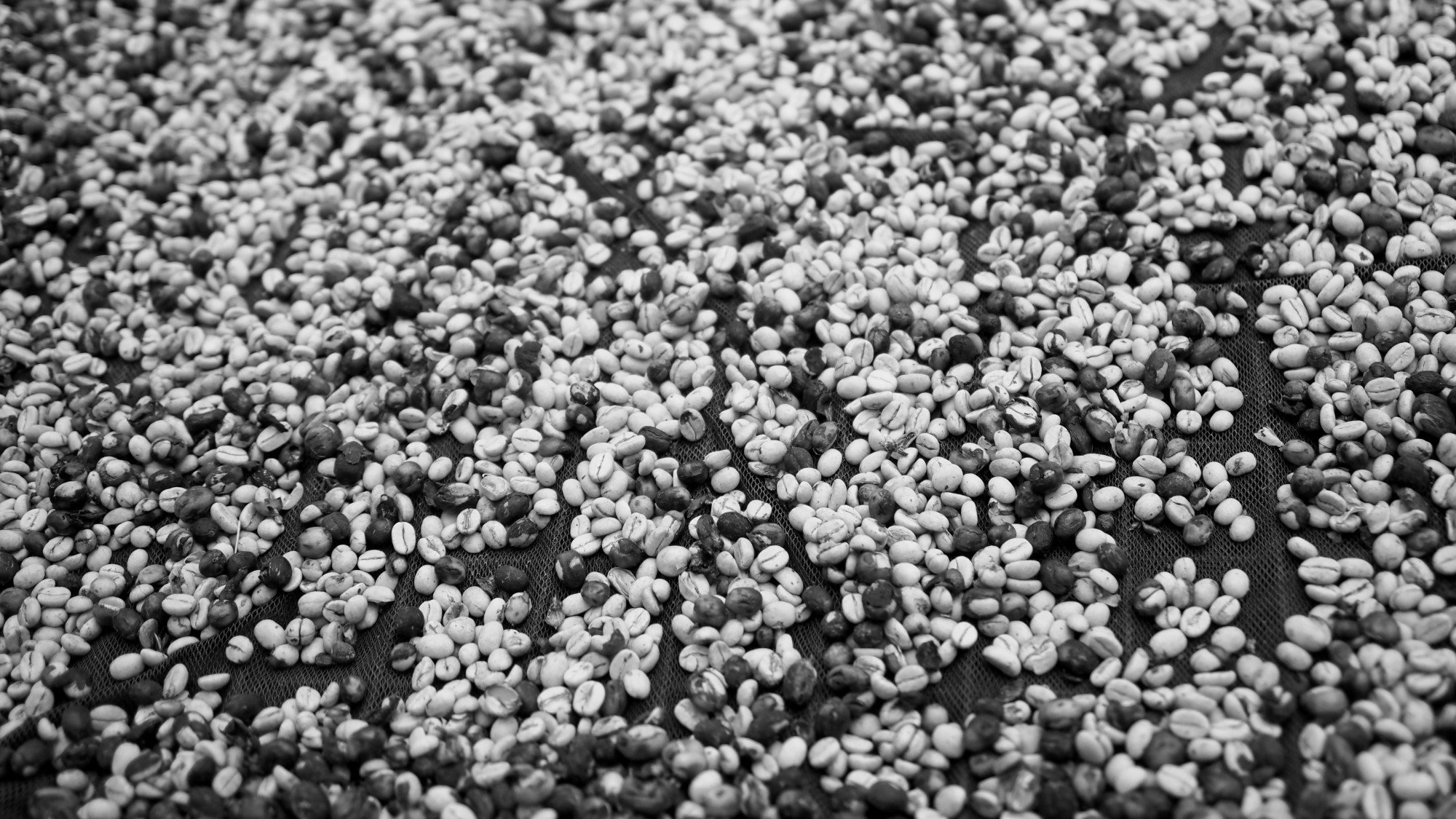
Aug 25, 2023 From A Concerned Farmer Aug 25, 2023 Aug 25, 2023

Aug 11, 2023 Philly is a (Coffee) Union Town Aug 11, 2023 Aug 11, 2023
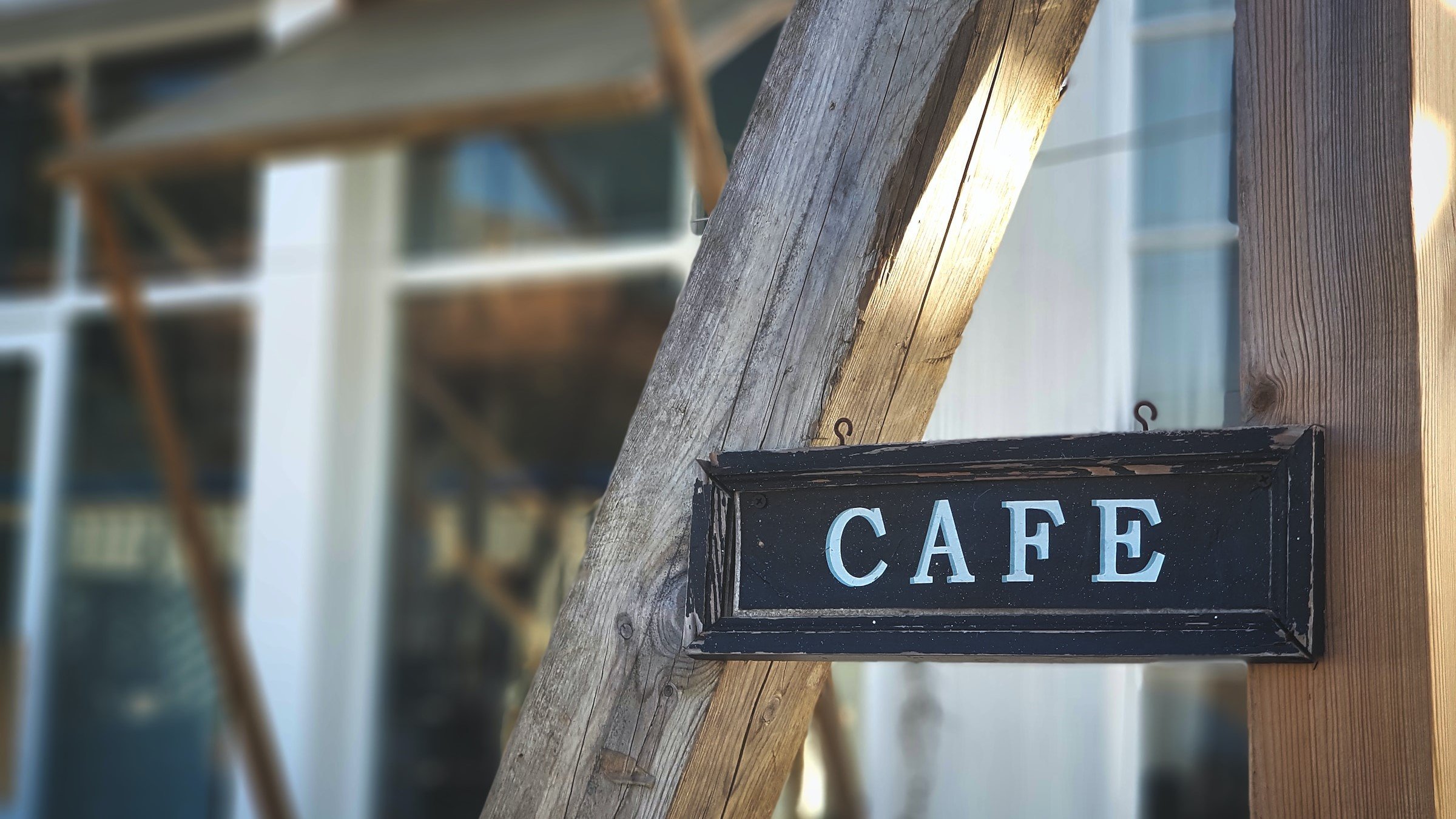
Jul 28, 2023 South Korea's Coffee Wars Jul 28, 2023 Jul 28, 2023
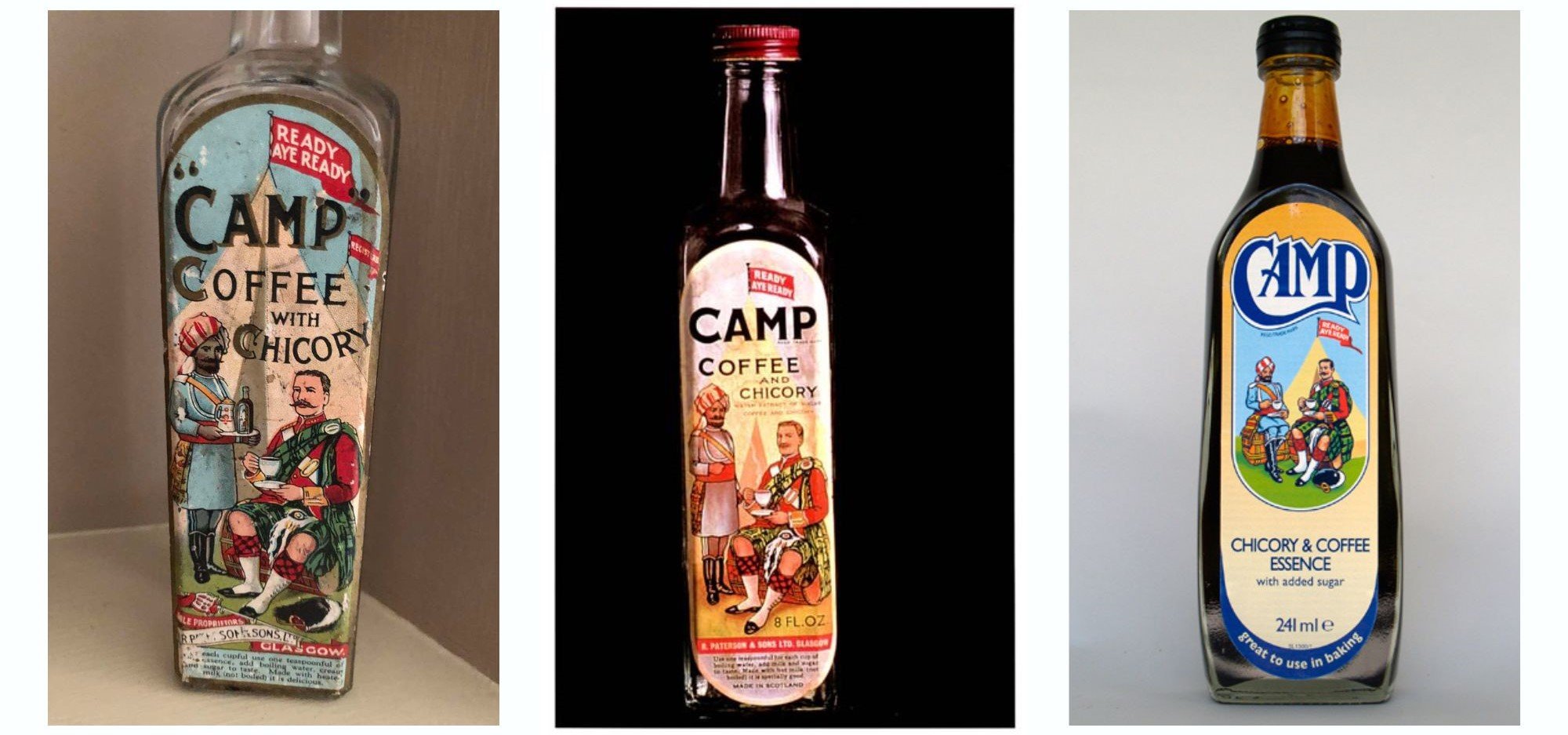
Jul 14, 2023 Camp Coffee, Colonialism, and the Evolution of a Brand Jul 14, 2023 Jul 14, 2023
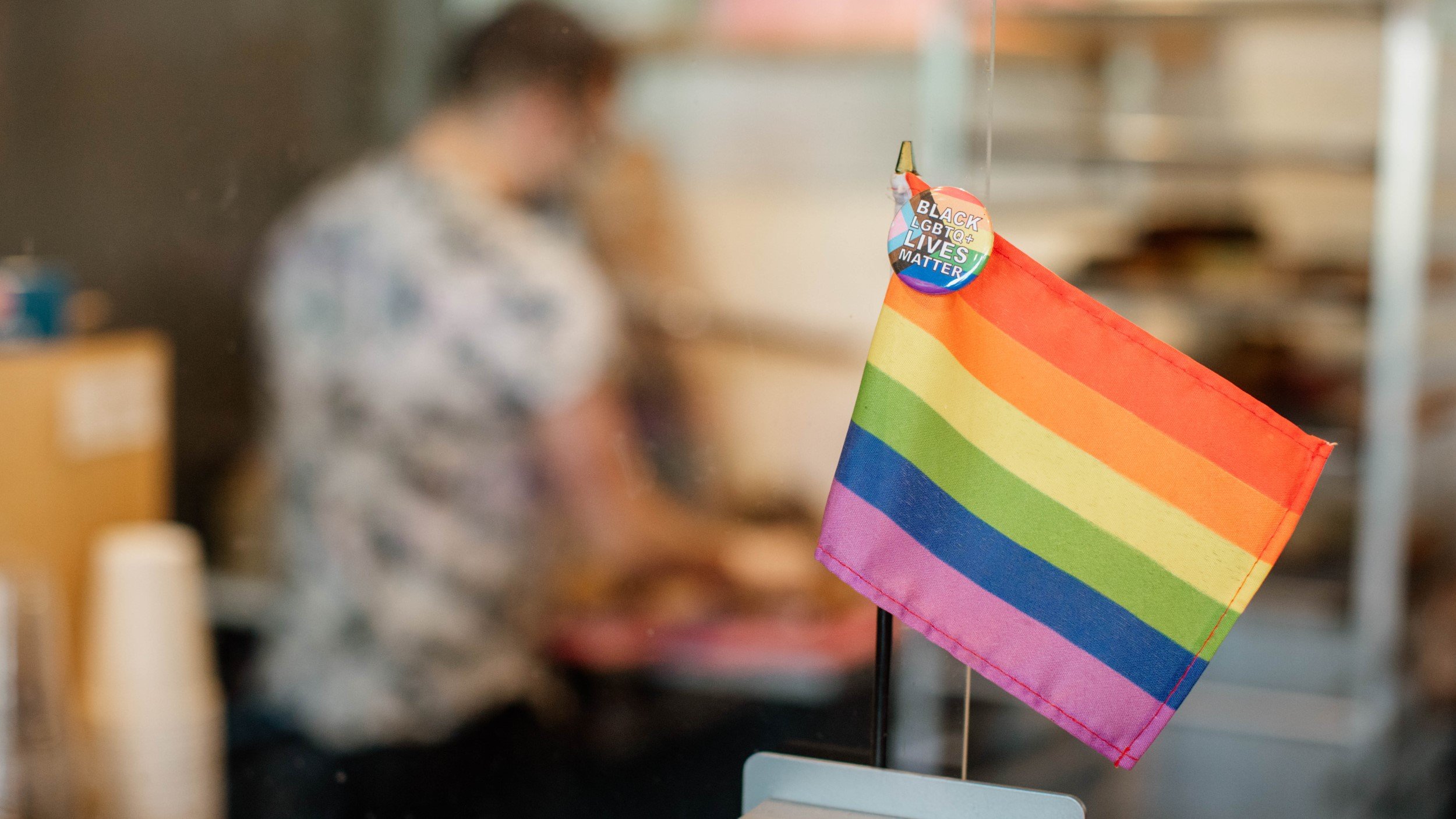
Jun 30, 2023 Defiance and Gay Frog Donuts: How Strange Matter Coffee is Navigating the Anti-LGBTQ+ Backlash Jun 30, 2023 Jun 30, 2023
A newsletter about coffee—its culture, politics, and how it connects to the wider world.